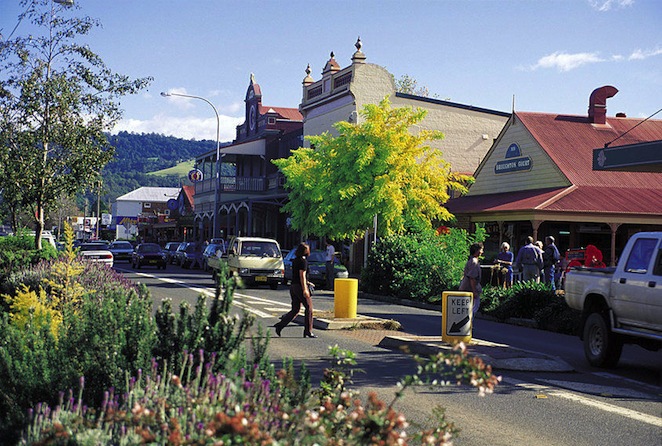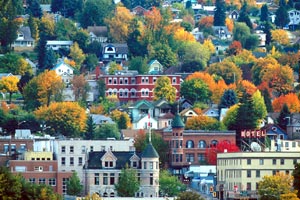Austria
Find Eduxpress Programmes
If you wander around the streets of any Austrian city, you’ll feel like you’ve gone back in time as you start to experience that fairy tale vibe. Austria has a unique charm making every visitor marvel at its beauty. As a student in Austria, you won’t just enjoy the country’s numerous beauties; you’ll also study at one of the universities offering excellent academic options.
One of the countless advantages of studying and living in Austria is being within one of the safest countries in the world and enjoying a high quality of life.
You can discover Austria’s incredible culture and history, if once you attend the diverse social events held in any of its major cities. From art exhibitions to concerts, theatre performances, and the famous balls – you can find pretty much anything.
Austria is also the perfect destination for outdoor sports fanatics. The Austrian Alps are the perfect setting for skiing, hiking and climbing.
Find your perfect study degree in Austria!
The great number of high-quality education institutions, a long academic tradition and an open-minded learning atmosphere make Austria an easy choice for students who are seeking an international education.
Austrian universities, as well as Austrian cities, have a high multicultural environment; so it is easy for foreign students to adjust here. Study degrees are either research-focused or they include practical exercises in order to develop your problem-based learning skills. Austrian universities partner with many of the local research centres that conduct projects in quantum physics, biomedicine, nanotechnologies, communications, and environmental technologies.
Public universities in Austria are free for all EU and EEA citizens; international students only pay around 1,500 EUR per academic year. At universities of applied sciences (UAS), tuition rates vary between 365 and 7,500 EUR depending on the study programme and your nationality.
Austria is one of the safest countries in the world, enjoying a low crime rate and a high standard of living and social security. In a world full of political and military tensions, armed conflicts, and violent protests, you won't have many worries while living in Austria.
If you choose Austria, you'll have the opportunity to study and live in Vienna, which has been ranked as the city with the highest quality of life for 10 years in a row! Everything from transport to accommodation, from student services to administrative support, from salaries to job outlook is excellent.
Wolfgang Amadeus Mozart, Franz Schubert, Egon Schiele, Gustav Klimt — do we need to say more? Austria also has a long list of museums and galleries which are a must-see for any visitor.
If you're into sports, you should feel right at home in Austria. There's something for everybody! And if you haven't found your preferred activity, don't give up. You can choose from football, alpine skying, hockey, swimming, mountain-biking, etc.
As music and arts have had a major influence upon Austria’s culture and traditions, you can expect many universities and academies to provide a large number of study programmes devoted to these fields. However, you can also find plenty of Bachelor’s and Master’s degrees in numerous fields, from Business Administration, Computer Science, to Languages, Political Science, Psychology, and Engineering.
Here are some of the most popular study options in Austria
Vienna is home to the largest number of universities in Austria. Other cities in Austria that house a variety of universities or academies are Graz, Salzburg, Linz, Graz and Innsbruck.
Highly urban cities like Vienna and Linz have numerous cultural attractions, with museums, theatres, bars and restaurants, to fulfil your active social life.Instead, in cities like Innsbruck or Salzburg that are surrounded by mountains, you can mostly spend your free time in the middle of nature, hiking or skiing during the winter.
Find out more about what it’s like to study in Vienna.
Austria is home to over 50 higher educational institutions, divided as follows:
Examples of universities in Austria:
For most universities in Austria, you can simply apply online by submitting the application form along with all requested application documents. However, it is always recommended that you check with your chosen university, as in some cases, you will also have to send documents by post. Here are a few important steps to keep in mind:
Let's take a closer look at tuition and living expenses in Austria:
At public universities in Austria, students from EU and EEA countries study free of charge. Non-EU/EEA students pay 1,452 EUR per year.
Things are a little different at universities of applied sciences (UAS):
Private universities can set their own tuition fees and you should expect higher tuition compared to public universities. Costs usually vary between 3,000 and 23,000 EUR per year, with some Business programmes costing over 35,000 EUR per year.
Most universities in Austria don’t provide any student accommodation, so you will have to choose between student residence halls or renting/sharing an apartment.
Prices for a room in a student residence is usually between around 200–400 EUR/month for a single room. If you choose to rent an apartment, rates are over 400 EUR/month.
Find out more about tuition and living costs in Austria
EU/EEA students enjoy the same benefits as Austrian citizens in terms of access to free or reduced-cost healthcare. To benefit from these services, you should hold an EHIC (European Health Insurance Card). You can arrange for an EHIC card from your home country, before your departure to Austria.
Students coming from some non-EU countries might benefit from free medical care due to reciprocal agreements with Austria. If this is not the case, you will need to arrange private health insurance before your departure to Austria.
Supermarkets in Austria don’t have expensive prices. In fact, your monthly groceries would lead up to 200–250 EUR. The average price of meals at local pubs or restaurants is about 10 EUR. In touristic areas, prices for a meal range between 11 and 18 EUR, adding another 4 EUR for a drink.
In Austria, the overall living costs for students are 900–1,300 EUR/month.
Austria is situated in Central Europe and is bordered by Switzerland, Liechtenstein, Germany, the Czech Republic, Slovakia, Hungary, Slovenia and Italy. Since Austria is not a particularly big country, you can easily take a trip to one of its border countries by train or by car.
Austria is one of the most economically-developed countries in Europe. The most important industrial branches include the food industries, the machine and steel industry, chemical and vehicle industry and the electric and electronic industry.
The Alps Mountains cover most of the country and Austrian ski resorts are famous worldwide. The weather in Austria is temperate and you’ll experience all four seasons, with cold and snowy winters and exquisitely warm summers.
Austrian culture is an eclectic mix of German, Italian, Hungarian and Czech elements. This unique character can be seen everywhere in the people’s personality, food, and even the city architecture.
German is the official and most spoken language, but you don’t have to worry if you don’t speak German. Most people in Austria speak English quite well.
Iconic places to visitAustria’s natural wonders along with its Baroque style buildings making it a fascinating place, amazing every visitor who comes through. The scenic beauty of the Alpes draws tourists during any season, while Vienna and Salzburg are stepped in history, and a simple walk on the streets of these cities reveals essential details of Austria’s culture.
Emblematic sites worth seeing in Austria are:



